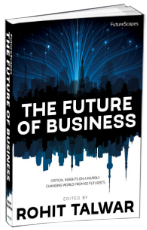14 May Homelanders – Our Youngest Generation
Wait, what? There’s a generation after the Millennials?
It’s not that long ago since I used to be asked this question. But this generation is building up steam. The oldest Millennials are all grown up and are not exactly “news” anymore (despite what Time Magazine seems to think). While Google Trends probably points to the TV-series called Homelanders, the traffic directed to this website is more often generationally directed. Search word data bringing traffic to After the Millennials does show that “Homeland generation” and “homelanders” is increasing, meaning it’s getting closer to becoming a “legitimate” generational moniker. But many names have been suggested for this generation, and at least to me, none of them sound particularly good.
 Homeland generation was coined after a contest among the readers of Neil Howe’s website in 2005. I personally think there’s a very strong 9/11 flavor over the Homelander term.
Homeland generation was coined after a contest among the readers of Neil Howe’s website in 2005. I personally think there’s a very strong 9/11 flavor over the Homelander term.
Depending on how you slice the generational categories, you might call them Generation Z, in which case they are now entering their teen years. Gen Z is assumed to have commenced their years on earth somewhat earlier, or between 1995 and 2000 (vs. New Silent/ Homelander 2004/05). Sometimes they are called the iGeneration, alluding to their supposed preference for the Apple brand. But whereas their parents and maybe some grandparents worshipped Steve Jobs as the ultimate tech-entrepreneur, it is not clear yet if their heirs will continue this brand loyalty. And there are some indications out there that Homelanders actually might be ditching Apple for Microsoft. If you see a kid transfixed on an apple embellished device, it is very possible he or she inherited it after a parental upgrade. We tend to run into anachronistic labels if we borrow trends from the present in order to envision the zeitgeist of the future.
 It’s a pretty established idea that you can’t assess a generation until they’ve already entered their formative years. The early 20th century sociologist Karl Mannheim and other generational scholars often state that identity formation happens during adolescence and that children are not exposing the traits they will inhabit as adults. Hence some are reluctant to speculate about the future character trait of a generation that is still mostly only children. I both agree and disagree with this stipulation. I agree that you cannot predict the exact characteristics of a future adult generation. In fact you can’t predict anything at all. However, I do believe that you can make forecasts and scenarios based on theory, generational archetypes, trends and driving forces in society, and documented childhood experiences of those who are children today.
It’s a pretty established idea that you can’t assess a generation until they’ve already entered their formative years. The early 20th century sociologist Karl Mannheim and other generational scholars often state that identity formation happens during adolescence and that children are not exposing the traits they will inhabit as adults. Hence some are reluctant to speculate about the future character trait of a generation that is still mostly only children. I both agree and disagree with this stipulation. I agree that you cannot predict the exact characteristics of a future adult generation. In fact you can’t predict anything at all. However, I do believe that you can make forecasts and scenarios based on theory, generational archetypes, trends and driving forces in society, and documented childhood experiences of those who are children today.
I don’t only think we could make some forecasts. I think we should. Because if we don’t try to anticipate them now, we will be less able to understand them and meet their needs in the future. And we will permanently lag behind.


How The Great Recession Defined A New Generation Of Children
Posted at 19:02h, 26 November[…] youngest generation, the Homelanders are defined by the Great Recession. According to generational expert Neil Howe, this was the […]